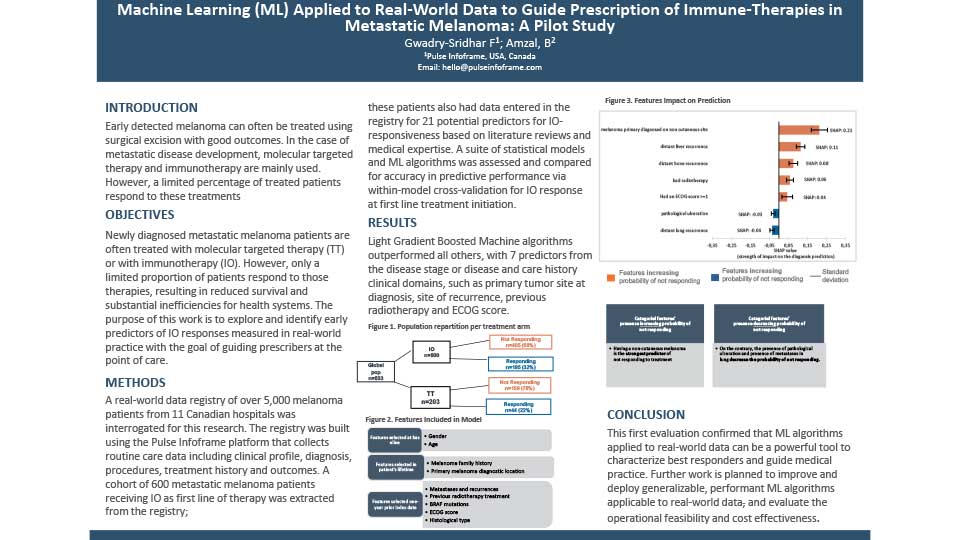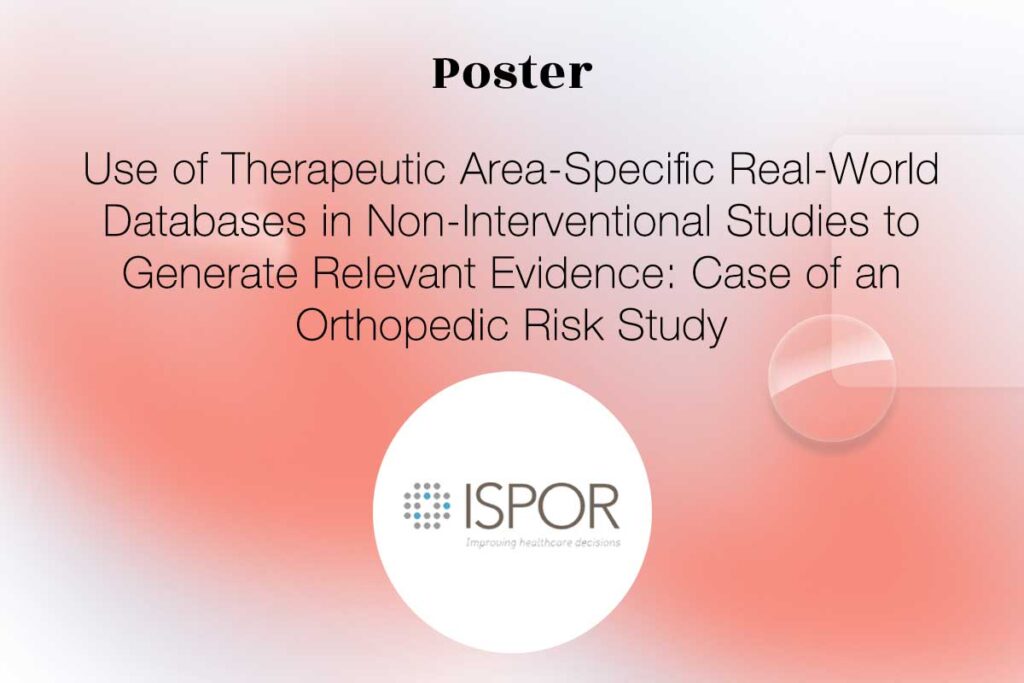Authors: B. Amzal, F. Magnard, P. Loustalot, M. Törnqvist, M. Rakibaz-Zaman, DS Ernst, F. Gwadry-Sridhar
Date: 17 May 2023
CONFERENCE/VALUE IN HEALTH INFO:
2023-05, ISPOR USA, 2023, Boston, MA, USA
Abstract
Objectives:
Newly diagnosed metastatic melanoma patients are often treated with molecular targeted therapy (TT) or with immunotherapy (IO). However, only a limited proportion of patients respond to those therapies, resulting in reduced survival and substantial inefficiencies for health systems. The purpose of this work is to explore and identify early predictors of IO responses measured in real-world practice, with the goal of guiding prescribers at the point of care.
Methods:
A real-world data registry of over 5,000 melanoma patients from 11 Canadian hospitals was interrogated for this research. The registry was built using the Pulse Infoframe healthieTM platform that collects routine care data including clinical profile, diagnosis, procedures, treatment history and outcomes. A cohort of 600 metastatic melanoma patients receiving IO as first line of therapy was extracted from the registry; these patients also had data entered in the registry for 21 potential predictors for IO-responsiveness based on literature reviews and medical expertise. A suite of statistical models and ML algorithms was assessed and compared for accuracy in predictive performance via within-model cross-validation for IO response at first line treatment initiation.
Results:
Light Gradient Boosted Machine algorithms outperformed all others, with 7 predictors from the disease stage or disease and care history clinical domains, such as primary tumor site at diagnosis, site of recurrence, previous radiotherapy and ECOG score.
Conclusion:
This first evaluation confirmed that ML algorithms applied to real-world data can be a powerful tool to characterize the best responders and guide medical practice. Further work is planned to improve and deploy generalizable, performant ML algorithms applicable to real-world data, and evaluate the operational feasibility and cost-effectiveness









